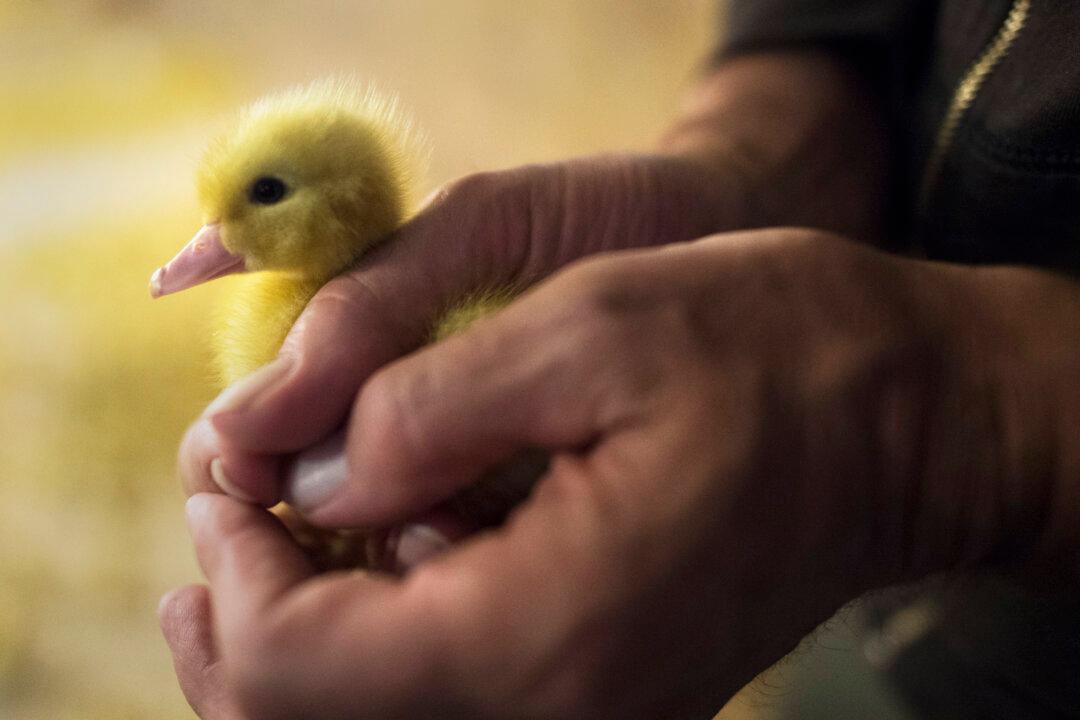NEW YORK—Marcus Henley dipped his rubber boots into a pan of clear disinfectant before stepping into a white brick building. He walked down a set of stairs to a wooden door that creaked as he opened it. A sound like hard, pattering rain came pouring out.
It wasn’t rain, but rather the sound of 8,000 ducklings, all about seven days old, waddling around on wood shavings. They’re specially bred moulard ducks, raised for their fatty livers, or foie gras, a controversial French delicacy.





